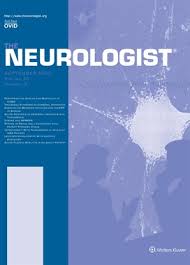Background:
Concussion affects almost 4 million individuals annually. There are many sideline screening tools available to assist in the detection of sports-related concussion. The King-Devick (K-D) test in association with Mayo Clinic utilizes rapid number naming to test saccadic eye movements in order to screen for concussion. An ideal screening tool for concussion would correctly identify all athletes with active concussion. The accuracy of K-D testing compared with other sideline screening tools is undetermined.Objective:
To critically assess current evidence regarding the utility of K-D testing as a sideline screening tool for acute concussion and compare K-D testing to other sideline concussion assessments.Methods:
The objective was addressed through the development of a critically appraised topic that included a clinical scenario, structured question, literature search strategy, critical appraisal, assessment of results, evidence summary, commentary, and bottom-line conclusions. Participants included consultant and resident neurologists, a medical librarian, clinical epidemiologists, and content experts in the field of concussion neurology and neuro-ophthalmology.Results:
A recent meta-analysis was selected for critical appraisal. Cohorts analyzing athletes with sports-related concussion were selected, and utilized K-D testing as the main baseline and sideline assessment of concussion. K-D testing was found to have a high sensitivity and specificity for detecting concussion when there was worsening from baseline.Conclusion:
K-D testing has high sensitivity and specificity for detecting sideline concussion. Compared with other sideline screening tools that do not include vision testing, it has greater accuracy. Screening for concussion is optimized when multiple testing modalities are used in conjunction.Summary Points
- K-D testing has high sensitivity (86%) and specificity (90%) for detecting active concussion on the sideline. Compared with other sideline tests that do not include vision testing, it is more accurate in the detection of concussion.
- Worsening of K-D score by one second or longer from baseline suggests a 5-fold greater likelihood of concussion.
- Identifying potentially concussed athletes on the sideline is optimized when multiple testing modalities are used in conjunction.
- Yearly or seasonal K-D testing, especially among young athletes, is recommended due to improvements that occur with age.
- K-D testing has high test-retest reliability and can be administered by laypersons.

